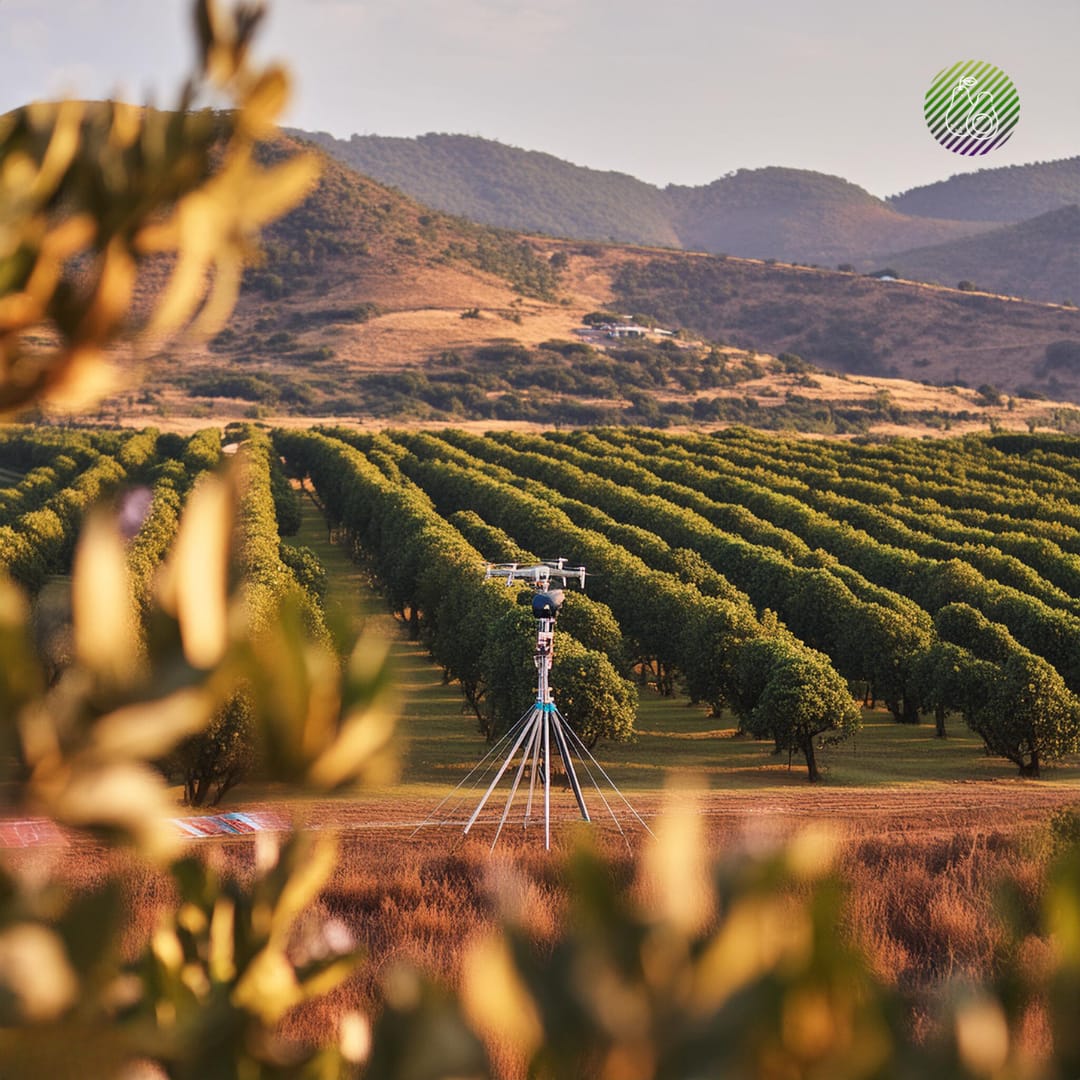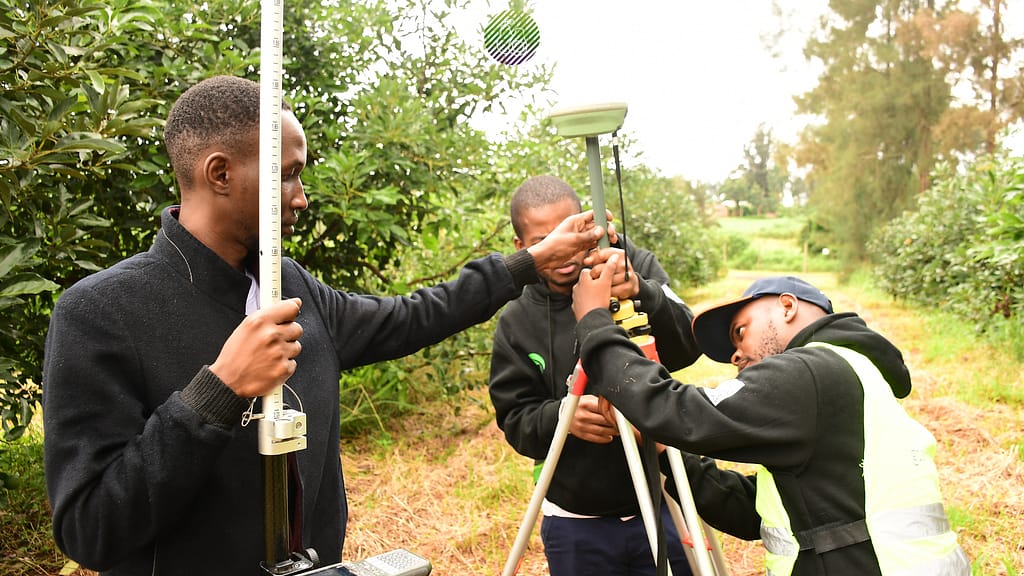
In the face of a rapidly growing global population, ensuring food security has become one of the most pressing challenges of our time. Traditional agricultural practices are no longer sufficient to meet the increasing demand for food, especially in the context of climate change, dwindling natural resources, and shifting socio-economic landscapes. This is where technology steps in as a game-changer.

One Million Avocados is at the forefront of integrating advanced technological solutions into agriculture to enhance food security. By leveraging cutting-edge innovations such as precision agriculture, blockchain, IoT devices and aerial imaging, we are transforming the way we cultivate and manage our avocado orchards. These technologies provide farmers with real-time data and actionable insights, enabling them to make informed decisions that boost productivity, optimize resource use and maintain sustainability.
In this blog post, we will delve deeper into the pivotal role that technology plays in securing our food systems, highlighting examples from our operations at One Million Avocados and illustrating how innovation is paving the way towards a more food-secure future globally.
What is Food Security?
Food security is a complex concept that encompasses the availability, access, utilization and stability of food supplies to ensure that all people, at all times, have physical, social and economic access to sufficient, safe and nutritious food that meets their dietary needs and preferences for an active and healthy life. It involves not only the quantity of food but also the quality, ensuring that the food consumed provides the necessary nutrients for human health.

Food security is influenced by a range of factors including agricultural productivity, food distribution systems, economic stability and social policies. It is also very closely linked to sustainable agricultural practices, environmental health and resilience against disruptions such as climate change, economic crises and natural disasters.
Achieving food security requires coordinated efforts at local, national and global levels to address issues such as poverty, inequality and inefficient food systems, therefore ensuring that everyone can access the food they need to lead healthy and productive lives.
What About Lack of It?
The lack of food security has profound and far-reaching effects on individuals, communities and nations. At the individual level, food insecurity can lead to malnutrition, which impairs physical and cognitive development, particularly in children and increases susceptibility to illnesses and chronic diseases. Adults facing food insecurity often experience reduced productivity and energy levels, which can hinder their ability to work and earn an income, perpetuating a cycle of poverty and hunger.
Communities experiencing food insecurity face social instability, as hunger and malnutrition can lead to increased crime rates and social unrest. The stress and anxiety associated with uncertain access to food also contributes to mental health issues, further straining community resources. To add to that, food insecurity undermines social cohesion as it exacerbates inequalities, creating divisions and resentment among different social groups
At its core, food insecurity intertwines with agricultural systems, disrupting their stability and functionality. Agricultural sectors in food-insecure regions often face a number of obstacles, including erratic weather patterns, soil degradation, limited access to resources such as water and quality seeds, and pest infestations. These factors collectively undermine agricultural productivity, leading to diminished crop yields, compromised livestock health, and increased susceptibility to crop failures. Furthermore, inadequate infrastructure and inefficient food distribution networks exacerbate the problem, hindering the distribution of agricultural products to those in need.
Overall, the pervasive effects of food insecurity hinder sustainable development and pose a major obstacle to achieving global goals such as the United Nations’ Sustainable Development Goal 2, which aims to end hunger, achieve food security and promote sustainable agriculture
Technology in Food Security: The Expressway to Sustainability
In the quest for food security, technology plays an increasingly pivotal role, transforming traditional agricultural practices and supply chains. Across the globe, innovative technologies are revolutionizing the way food is produced, distributed and consumed.
A spectrum of technological innovations have emerged to confront both biotic and abiotic stresses that threaten agricultural productivity and stability. By developing and implementing advanced tools and techniques, such as crossbreeding to produce crops resistant to pests and diseases, precision agriculture practices and blockchain technology, we aim to mitigate the adverse effects of environmental challenges and food instability to enhance crop yield.
Implementing Precision Agriculture to Increase Food Availability and Stability
At the heart of precision agriculture lies the utilization of data-driven insights and advanced technologies, such as GPS, drones, sensors, and machine learning algorithms, to precisely manage agricultural inputs and processes. By leveraging these methods, farmers can meticulously tailor their farming practices to the specific needs of their crops, soils and environmental conditions, therefore maximizing yield potential.
For instance, using precise irrigation systems can optimize water usage and minimize waste while using precise application of fertilizers and pesticides allows for targeted delivery, reducing environmental pollution.
Furthermore, precision agriculture facilitates food stability by enabling farmers to make data-informed decisions throughout the production cycle. Real-time monitoring of crop health and environmental conditions enables early detection and response to potential threats, such as pest and diseases or adverse weather events, therefore minimizing yield losses and ensuring a consistent food supply.

To add to that, by collecting and analyzing data on soil health, nutrient levels, and crop performance over time, farmers can adopt more sustainable practices that promote long-term soil fertility and ecosystem resilience.
Ultimately, precision agriculture empowers farmers to optimize resource use, increase productivity and enhance the quality and sustainability of food production, thereby contributing to greater food availability and stability in the face of evolving environmental and market dynamics.
Using Blockchain Technology to Ensure Food Access
Blockchain technology serves as a transformative force in promoting food access and ensuring traceability, particularly evident in innovative approaches like the tokenization of avocado trees pioneered by ØMA.
By tokenizing each avocado tree planted and recording all pertinent data—such as the farmer’s information, planting date, location, cultivation practices and harvest details—on a decentralized digital ledger, blockchain revolutionizes transparency and accountability in the agricultural supply chain. This approach empowers consumers to trace the entire lifecycle of avocados, from cultivation to distribution, with unprecedented clarity thereby fostering trust between producers and consumers while also enabling informed purchasing decisions based on factors such as sustainability, ethical practices and quality assurance.
Moreover, blockchain technology enhances food access by streamlining supply chain processes and reducing barriers to market entry for smallholder farmers. By securely storing ownership rights and product information on the blockchain, it facilitates direct peer-to-peer transactions, eliminating intermediaries and associated costs. This enables farmers to receive fair compensation for their produce and access broader markets, thereby increasing their economic opportunities and improving their livelihoods. Additionally, the immutable nature of blockchain ensures data integrity, preventing tampering or fraud throughout the supply chain.
By leveraging blockchain technology to tokenize avocado trees and record essential data, we not only promote food access and traceability but also catalyze a paradigm shift towards more transparent, equitable and sustainable agricultural systems.
Conclusion
In conclusion, technology stands as a beacon of hope in the pursuit of global food security, offering innovative solutions to address the complex challenges faced by our agricultural systems. From precision agriculture methods that optimize resource use and maximize yields to blockchain technology that ensures transparency and traceability throughout the supply chain, technological advancements play a pivotal role in enhancing food availability, access and stability.
As we continue to harness the transformative power of technology, collaboration between stakeholders, investment in research and development and commitment to inclusive and sustainable practices will be essential in realizing a future where nutritious and affordable food is accessible to all, ensuring the well-being of current and future generations.

One thought on “Growing Innovation: The Role of Technology in Food Security”
Comments are closed.